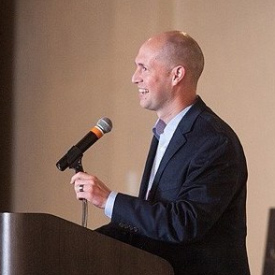A Doorway to Plato
A review of David Diener's "Plato: The Great Philosopher-Educator"
In the opening pages of Plato: The Great Philosopher-Educator, David Diener observes that “Plato was one of the principal founders of the Western intellectual tradition, and it is nearly impossible to examine the historical development of any academic topic without, knowingly or unknowingly, addressing Plato’s views.” Indeed, it would be nigh impossible to overestimate the impact of Plato’s thought on Western civilization.
But rather than attempting another whirlwind tour of Plato’s general thought (of which there are many), Diener’s newly-released work, published by our friends at Classical Academic Press, focuses on Plato’s philosophy of education. After providing a brief biography and describing the historical setting in which he lived, Diener provides a helpful synopsis of Spartan and Athenian education in Plato’s day – two starkly different approaches within the two most influential Greek city-states. Diener writes:
“Whereas in Sparta physical strength and skill were the primary goals, in Athens the curriculum was designed to develop both the body and the mind. This dual focus was recognized at least as far back as Solon, who placed physical and intellectual training on the same footing and argued that above all else children should learn ‘to swim and read.’ Thus the Athenian curriculum consisted of both gymnastics for the cultivation of the body and music for the cultivation of the mind and soul. Plato…was in many ways a proponent of this approach to education.”
Put another way, Spartan education was job training. The desire for warriors necessitated emphasis on physical training, a curriculum determined by and enforced by the State. In Athens, however, physical training was coupled with “musical training” which included “all the arts fostered by the muses to promote beauty and happiness” – poetry, memorization, history, mythology, science, philosophy, and more. Diener notes that “The curriculum studied by Athenian boys was guided by the belief that education should train all aspects of a child’s nature.”
As noted already, Plato’s philosophy of education aligned closely with the Athenian approach. Plato argued that education should guide one to virtue, not simply prepare one for a job. Diener cites one of Plato’s more direct statements to that effect, from the Laws: “A training directed to acquiring money or a robust physique, or even to some intellectual facility not guided by reason and justice, we should want to call coarse and illiberal, and say that it had no claim whatever to be called education.”
Instead, Diener writes, “The primary purpose of education is thus not to transfer to students a body of knowledge or a set of skills. Rather it is to cultivate them into a certain type of human beings who have a certain disposition toward learning, themselves, and the world around them…for Plato the aim of education is ‘ultimately right conduct, not success in life.’” Clearly, Plato’s definition of “success” differed significantly from modern ones.
Diener manages, in the short space of about 80 pages, to provide a glimpse into Plato’s understanding of the nature and purpose of education, curriculum and pedagogy, his legacy and his lasting relevance. While such brevity does not permit in-depth analysis, Diener successfully provides a doorway for those who want to know more about Plato’s life and thought.
Among the book’s strengths, a few stand out as quite significant.
- First, Diener approaches Plato as an educator, not the all-too-complex philosopher imagined by many. Far from being an “impractical academic,” Plato was a headmaster who started a school that lasted about 1000 years and changed the course of Western Civilization. There are valuable lessons for school leaders here, particularly given the intense pressure to gauge a school’s success through standardized tests and measurable outcomes – ideas antithetical to Plato’s philosophy of education.
- Second, Diener highlights Plato’s emphasis on education as a lifelong cultivation of character and virtue, and that for the benefit of the whole society. He writes, “A society is not served by education because education enables it to prosper economically but because education fosters a character in its citizens that enables them to use whatever prosperity they enjoy for good.”
- Finally, Diener provides a very helpful description of the two stages of Socratic teaching: ”In the first (destructive) stage, Socrates raises objections to the opinions of his interlocutor in order to expose those opinions as false, inconsistent or unsatisfactory…Once the student has admitted ignorance, the second (constructive) stage of the process begins. In this stage Socrates searches together with the student for the correct answer to the question by continuing to ask questions and evaluate answers. This process continues until together they discover an answer to the question that can withstand further scrutiny by further questions.”
A quick and informative read, Plato: The Great Philospher-Educator is a valuable resource for classical educators.

Brian Phillips
Dr. Brian Phillips serves as a pastor in Concord, NC, where he lives with his wife and their four children.










